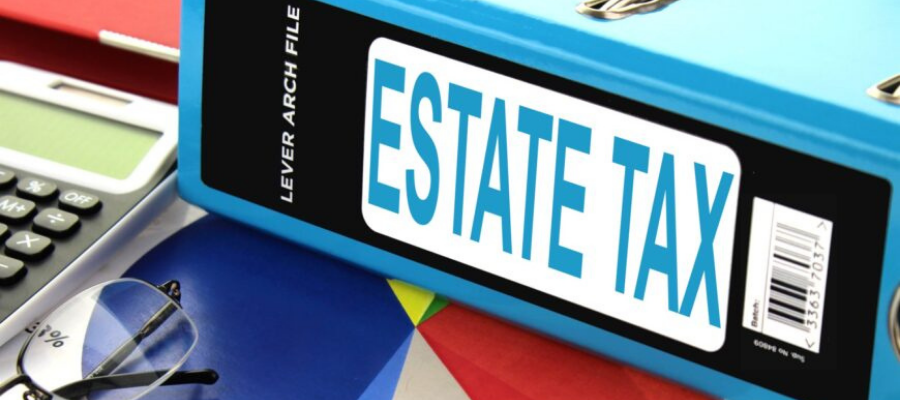
Thinking about gifting real estate to your children or to charity?
Deni and Brian talk through the tax consequences of giving property, both while you’re alive or as part of your last will to transfer in your estate plan.
Video Broadcast Version
Audio Podcast Version
Also available on iTunes, Stitcher, and wherever else you listen 🙂
Resources Mentioned in This Podcast & Video:

Brian: Hey, guys. Happy Tuesday.
Deni: Hi.
Brian: We are totally discombobulated this Tuesday. The light is out in my conference room, so I’m just hanging out in, like, the broad communal area here. There’s going to be toilets flushing. It’s going to be a normal life going on here.
Deni: We all try to make it squeaky clean and perfect, but normal life always sets in.
Brian: Now, let’s be honest, it’s never squeaky clean and perfect on this podcast. It’s true. It’s always full of how do we put it gently personality.
Deni: That is definitely. I remember when my dogs fought way back.
Brian: Oh, yeah, yeah. The dogs are fighting in the background. All that good stuff. All right. Well, so today we were talking all about gift taxes and estate taxes and most critically, how to minimize and avoid both of those as both a giver and a receiver. Last week, we talked all about quitclaim deeds, and how to use them as a real estate investor. Then on a bit of a legal kick here. Over the last week or two. But these are things that you really should know as a real estate investor. So we’re going to dive right in. Deni let’s start out by talking about gift taxes. So, first of all, what are they?
Deni: Gift taxes are basically taxes on any gift that you provide to another person. So that could be like we were just speaking of kind of it would be stocks, it would be a home, it could be a car, cash, anything of value. Basically.
Brian: The IRS wants to tax it. Of course, they want to tax everything.
Deni: The nice thing about the federal gift tax is that there are some. Limits and whatnot, so you can give away. Well, we just went up to 12.06 million for a lifetime. And then you won’t, oh, tax on those assets or $16,000 per year per donor, but well.
Brian: $16,000 per year. So that threshold is not the point at which someone owes a gift tax. That threshold is the point at which you have to file tax form 709 to report the gift to the IRS.
Deni: So, it’s important to mention that you’re considered separate individuals when you’re married. So, you would actually get twice those amounts.
Brian: Right. So, let’s say that you are married, and you have a favorite child that you want to give lots of money to. So, you can give them up to $16,000 per year without having to report it to the IRS. Your spouse can also give that favorite child up to $16,000 a year without reporting it to the IRS. So, your spoiled brat of a kid could walk off with $32,000, up to $32,000 this year, and the IRS would be none the wiser. Now, if you give them $16,001 and your spouse gives them $16,001, then you each have to file separate tax form 709 as part of your tax return to report that gift to the IRS. Now, that doesn’t mean that you owe gift taxes on that gift this year. It doesn’t. It means that that amount that you gifted them gets recorded by the IRS toward that $12.06 million lifetime exemption limit on gift taxes.
Deni: Which seems to be going up.
Brian: Oh, yeah. Yeah. So, in the tax year 2021, the lifetime exemption limit was 11.7 million. This year, it’s 12.06 million goes up every year to adjust for inflation. So, something to keep in mind. All right, Deni what about the estate tax?
Deni: Just to let you all know, I’m putting the IRS definition and information all about estate taxes in the chat.
Brian: All right. There we go. So, Deni, what are estate taxes, first of all?
Deni: A state taxes are your estate, basically, which consists of securities and taxes on the gross.
Brian: Your assets when you die. That goes to your heirs, basically. But you would find on this mortal plane.
Deni: You can subtract the cost of debts, mortgages, and stuff like that, all the administrative, all that stuff. And then those taxes pass on to the survivor, which it could be a spouse. It could be a charity. It could be a child. Children. My case.
Brian: So, some people call estate taxes, death taxes. Yes. You know, same difference. It’s all of your worldly belongings at the time of your death that gets passed on to your heirs. That’s your estate.
Deni: And now that’s on a federal level. There are some states, as there always are, that get you on the state level, not all the states, but a 12. I think of them 12 or 13. Including my state.
Brian: Well, what are they? Well.
Deni: I’ll go in real quick. Connecticut. D.c.. Illinois. Iowa. Kentucky. Maine. Maryland.
Brian: My home state.
Deni: Massachusetts. Minnesota. Nebraska. New Jersey. New York. Oregon. Pennsylvania. Rhode Island. Vermont. And Washington.
Brian: Right. So, on top of the federal government, taxing your estate after you die, individual states, if you live in one of those states, will also tax your estate upon your death.
Deni: Now, I understand why so many retirees move to Florida.
Brian: There you go. Lower taxes in general. Nicer weather, right? Yeah. No income tax? No. Lots of coastlines. There are lots to like about Florida. So that $12.06 million lifetime limit in gifts is the same. That’s the same limit for the exemption on estate taxes. So, you can give your heirs, your children, or any other heirs up to that limit, both in your lifetime and after you die. That is a that’s the total lifetime limit that is exempted from gift and estate taxes. So, if you’re if you have a net worth of $1,000,000 when you die and you pass that on to your kids and you haven’t given them anything else over the years, your kids will not pay any estate taxes. But if you have been giving your kids money over the years and you leave them a significant estate and the total of all the money you left them over the years and your estate comes out to over 12.06 million per beneficiary, per heir. Then the government is going to tax your estate above that dollar figure and cut some of your area’s estate for themselves. So how do we minimize the gift and estate taxes so that our heirs, our children, and any other heirs don’t have to pay them after we shuffle off this mortal coil?
Deni: Well, I mean, you can set up an irrevocable life insurance trust. You can make charitable donations in a family limited partnership. Which is basically like an LLC for your fam, and you can fund a qualified personal residence trust. This is in a revocable trust. I am not totally familiar with these. So, but it is apparently a positive and good way to keep your asset safe from taxation.
Brian: Yeah. You got to be really careful with irrevocable trusts because as the name suggests, you can’t change them once you sign it into existence. So, once you transfer assets into an irrevocable trust, they’re gone. They’re not yours anymore to mess around with like you lose all control over them.
Deni: So, yeah, it’s your trustee who.
Brian: Yeah. So, you got most.
Deni: Of all.
Brian: Basically always, always talk with a very knowledgeable estate planning attorney before you messed around with revocable trusts or I’m sorry irrevocable trusts. Revocable trust. You can change it later. So, it’s not permanent. So, you can be a little you can play a little faster and looser with revocable trusts, but irrevocable trusts, like once you transfer assets to it, they’re gone. You no longer have any control over them. So just a word to the wise. All right. One thing that you can do, especially as a real estate investor or any other type of investor is, rather than selling off your assets before you die and leaving the money in cash to your heirs, leave the money invested in those assets and just pass those assets on to your heirs. Whether that’s investment properties, whether that’s stock holdings because when you die, the cost basis for those assets resets to whatever the value is upon your death. So, let’s just give a really, really quick example here. You buy a property for $100,000, and by the time you die, it’s worth $1,000,000. If you sell that property the day before you die, then you owe $900,000 in capital gains tax on that on that property. Right. Because it went up in value from 100000 to 1000000. It went up by 900,000. So, you owe capital gains taxes on that $900,000 in earnings and capital gains on that property. Right. However, if you own that property at the time of your death, the cost basis resets from what you paid for it, 100,000 resets to the value at your death, which is $1,000,000. So that 900,000 in taxable capital gains all disappears when you die.
Deni: Which is pretty amazing even. Yeah. I mean, you have people that have owned a home since like 1950 and.
Brian: They own Buffett.
Deni: Yeah, right.
Brian: He bought that house and it’s a pretty modest house, actually bought that house in Ohio, or I guess it was Omaha, not Ohio, but for like 50 grand back in like the sixties. And he still lives there.
Deni: And it makes sense. It makes sense.
Brian: Yeah. And the same goes not just for real estate, but also for stocks. So, you know, whatever you paid for a stock, that cost basis gets wiped out when you die and the cost basis resets to whatever the stock is worth at your death. So that’s a really important point, that it’s better to leave your heirs the unsold assets than it is to liquidate them and hand your heirs the cash.
Deni: You definitely don’t want to let your heirs know this because you never know.
Brian: Yeah, they might knock you off. I mean.
Deni: Serious.
Brian: Now, all that being said, you know, there are we’re not going to get political here, but there are certain political stripes that want to change that rule and don’t want the cost basis to reset upon your death because they want to be able to tax you more. So, I personally, I don’t think that that rule will be around forever. But for now, that is the rule. Any assets that you own at your death, the cost basis resets to whatever it is at the time of your death.
Deni: So, no jumping out of windows or anything.
Brian: But yeah. It’s, not worth offing yourself early just to take advantage of that tax rule.
Deni: Not at all.
Brian: All right, Deni what are some other ways that people can minimize gift taxes or estate taxes?
Deni: Well, you definitely want to stay within that new limit, 12.06 million. So, keep track of that and make sure that whatever you’re giving stays within that or the 16,000 if you’re single, 32,000 per year, if you’re married. So, you can spread a gift over several years. You can provide a gift directly for medical expenses. And apparently that circumvents some of the tax.
Brian: So, it’s tax-free if it’s directly for medical expenses.
Deni: Yes. And you can’t send it to the recipient and tell them this is for medical expenses. You have to pay the medical expenses.
Brian: To pay the hospital directly, whoever the provider is.
Deni: Yeah, exactly. And the same thing for educational. So, if you’re paying college tuition and stuff like that, again, you can’t give it to the recipient, but you can pay the institution. Yeah, but not books or supplies and stuff like that. And then you want you and your spouse can both remember. You can both provide gifts per recipient in one year. So, you just want to make sure that you’re both on the same page. And you know, if you have that favorite child, that one isn’t giving more than the other, if you have different ones. But so those are some of the. Some of the ways that you can circumvent your gift tax. And again, remember, each state is different. So, I imagine just like there was the states for the estate taxation, the same goes for the gift taxes.
Brian: And as a final thought here. You know, we would never suggest that you cheat on your taxes, but if you don’t, if you stay under that 16,000 annual limit and you don’t have to report these gifts to the IRS, I don’t know how they would find out about it short of an audit. Again, not suggesting that anyone cheats on their taxes, but just saying that, you know, if it’s not reported to the IRS now, what do they know about what has transpired between you and your children?
Deni: Exactly.
Brian: Again, if you’re audited, that’s a different story.
Deni: And let me throw in disclosure right now, we are not accountants or attorneys. So please talk to a professional before you plan on doing anything that could get you into trouble.
Brian: Alright, Deni any final thoughts before we announce the winner of the prop stream giveaway?
Deni: I don’t think so. I think unless anybody has questions, we are pretty much covered.
Brian: Now they missed their window. We’re giving away a six-month subscription to Prop Stream, which is worth well over $600. Prop Stream is an outstanding platform for finding distressed properties in foreclosure, in tax sales, owners with judgments, tax liens, all that stuff. Divorces. So, it’s a great platform for finding distressed properties. We’re giving away a free six-month subscription to it. Property charges over 100 bucks a month for their service. And the winner. Drum roll. Deni who is the winner?
Deni: The winner is Holly P. Now, Holly, if you’re watching and you find out about this, please contact us as [email protected] or [email protected] so we can set that up for you.
Brian: Oh, so did she not contact us? Okay, so yeah, we maybe we may be contacting a follow-up winner because.
Deni: Yes. If Holly does not contact us with her information.
Brian: Yeah, 24 hours.
Deni: Yeah. And we will be choosing somebody else.
Brian: All right. Well, congratulations to Holly P if it stays the winner being Holly P. But we do need you to. We do need your contact information. We need you to contact us. Otherwise, we’ll be drawing a new winner and emailing them. So, Deni, is there anything else that you want to go over before we call this episode complete?
Deni: I don’t think so. Just to let you all know, a lot of this information is actually right on the IRS website. And they actually do provide a lot of information. So, if you have any. Just pop on there and read about it if you can. Just to learn so that you stay in the.
Brian: Parameters on the right side of the law. Right. All right. Well, you guys, happy Tuesday. And we will see you next Tuesday at 2 p.m. Eastern, 11 a.m. Pacific, for a regular weekly podcast. And in the meantime, reach out and let us know what you want to hear about moving forward. This show is all about you guys. It’s not about us. So let us know what you want to learn more about.
Deni: Absolutely. And happy Easter, everyone.
Brian: Happy Easter. See you guys’ next week.
Deni: Bye bye.























